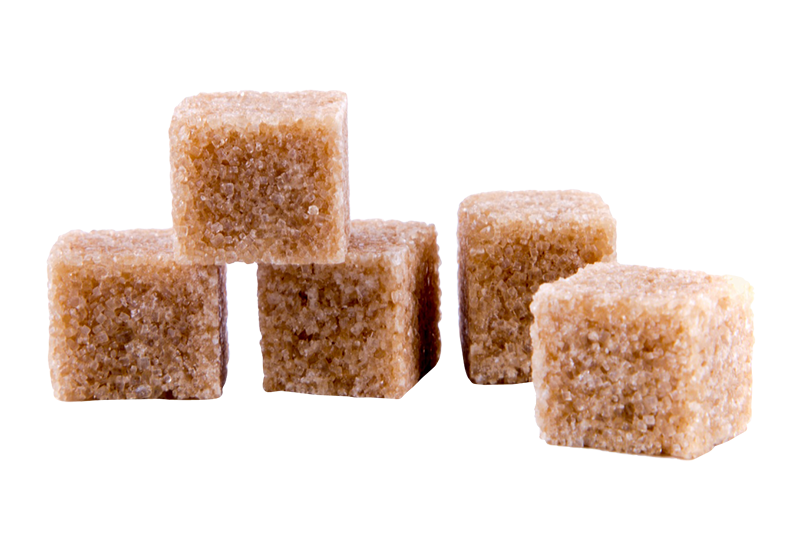Advanced Cane Sugar Processing: Enhancing Effectiveness and Sustainability
Advanced Cane Sugar Processing: Enhancing Effectiveness and Sustainability
Blog Article
A Thorough Introduction of the Health And Wellness and Economic Ramifications of Walking Stick Sugar Processing on Local Areas
Cane sugar processing plays a crucial duty in forming the financial landscape of neighborhood areas, supplying work opportunities and stimulating secondary sectors. The health and wellness implications connected with high sugar consumption can not be overlooked, as they add to increasing rates of obesity and diabetes.
Economic Benefits of Cane Sugar Processing
Cane sugar processing uses significant economic benefits that extend beyond the instant farming industry. The farming and handling of sugarcane develop many job chances, from farming to manufacturing and circulation. This work generation not only sustains regional economies however additionally promotes community growth by supplying stable earnings sources for family members.
Additionally, the sugar industry boosts secondary companies, consisting of transportation, devices supply, and packaging solutions (Cane Sugar Processing). As these industries grow, they add to a much more robust economic structure, enhancing total community durability. The export capacity of refined cane sugar better magnifies financial benefits, positioning regions as affordable players in worldwide markets
Investment in modern processing centers can bring about increased efficiency and performance, thereby minimizing waste and enhancing source use. This shift not just benefits the local economic situation but additionally sustains sustainability initiatives by lessening environmental effects.
In addition, the profits generated from cane sugar processing can be reinvested in neighborhood facilities, education, and health care, promoting alternative neighborhood growth. Overall, the economic benefits of cane sugar processing are multifaceted, offering a foundation for enduring success in agricultural areas.
Wellness Risks Connected With Sugar Consumption
Too much sugar intake poses considerable health and wellness threats that necessitate significant interest. High intake of added sugars, particularly from processed beverages and foods, has actually been linked to countless wellness difficulties. Among one of the most important issues is weight problems, as sweet diet regimens contribute to an enhanced calorie consumption without supplying essential nutrients. This excess can bring about metabolic conditions, including kind 2 diabetic issues, which has come to be significantly common in both adults and kids - Cane Sugar Processing.
Moreover, high sugar usage is connected with heart disease. Elevated blood glucose degrees can lead to insulin resistance, a forerunner to various heart-related issues. In addition, sugar can have harmful results on oral health, resulting in dental caries and periodontal condition, as germs in the mouth grow on sugar, producing acids that wear down tooth enamel.
In addition, emerging research recommends a prospective link between high sugar intake and psychological wellness problems, such as anxiety and stress and anxiety. As neighborhoods face these health and wellness threats, it comes to be necessary to promote understanding and motivate healthier nutritional selections. Dealing with sugar usage is critical not only for private health and wellness however also for the overall well-being of local neighborhoods, highlighting the need for comprehensive public wellness methods.
Environmental Impacts of Sugar Manufacturing
Regularly forgotten in conversations about sugar's ramifications is the substantial environmental influence of sugar production. The cultivation of sugarcane typically requires comprehensive land usage, causing deforestation, loss of biodiversity, and interruption of regional ecological communities. The conversion of woodlands and wetlands right into sugar vineyards can result in environment damage, threatening countless types and altering eco-friendly balance.
Moreover, sugar manufacturing is resource-intensive, consuming considerable quantities of water for watering. This can lead to deficiency of local water resources, adversely affecting both farming techniques and community accessibility to why not check here tidy water. Additionally, using chemical fertilizers and pesticides in sugarcane farming can add to soil destruction and water pollution, as overflow from these chemicals gets in nearby rivers and lakes, impacting aquatic life and human health and wellness.
The environmental footprint reaches the handling stage, where energy intake and waste generation further intensify ecological concerns. Air contamination from shedding sugarcane areas, together with greenhouse gas exhausts, add to climate adjustment. Because of this, the environmental implications of sugar manufacturing warrant significant factor to consider, prompting stakeholders to adopt more sustainable methods to reduce these damaging effects on local ecosystems and neighborhoods.
Task Development and Community Advancement
The ecological obstacles positioned by sugar manufacturing are often counterbalanced by its capacity for financial benefits, especially in work creation and community growth. The walking cane sugar sector works as a significant resource of work in many country locations, supplying tasks throughout different skill levels, from agricultural labor to processing and circulation duties. This work not only sustains specific households yet additionally contributes to the total economic vigor of regional areas.
Moreover, the establishment of sugar handling centers boosts secondary organizations, such as transportation solutions, devices supply, and maintenance companies. As these businesses thrive, they develop extra work and reinforce regional economic climates. The income produced from the sugar market also leads to increased tax obligation revenues, which can be reinvested into neighborhood solutions such as healthcare, education and learning, and facilities advancement.
In addition, the sugar industry often involves in neighborhood advancement efforts, such as supporting neighborhood colleges and wellness programs, therefore enhancing the high quality of life for locals. By fostering strong area connections and promoting economic growth, the walking stick sugar processing sector plays a vital function in uplifting regional populations, making it an important element of lasting development strategies in sugar-producing areas.
Harmonizing Wellness and Economic Growth
In navigating the intricacies of cane sugar handling, an important difficulty depends on stabilizing health and wellness considerations with financial growth. The sugar sector substantially adds to regional economic situations by creating tasks, promoting relevant industries, and boosting tax revenues. Nonetheless, the health implications associated with extreme sugar consumption can cause persistent conditions such as weight problems, diabetes, and cardio concerns, which can problem public health systems and reduce workforce efficiency.

In addition, regulatory frameworks can play a pivotal duty in guiding industry more helpful hints techniques towards even more sustainable and health-conscious techniques. By fostering partnership between government bodies, health companies, and the sugar sector, areas can browse the duality of health and economic growth, guaranteeing that the advantages of cane sugar handling are equitably shared while focusing on public health and wellness.
Final Thought
To conclude, the handling of cane sugar presents both significant economic benefits and notable wellness dangers for regional communities. While it cultivates work creation and stimulates local advancement, the connected health and wellness issues, particularly regarding obesity and diabetic issues, necessitate a mindful harmonizing act. By advertising accountable consumption and investing in area education and lasting techniques, it is possible to take full advantage of economic advantages while reducing negative health and wellness results, therefore making sure a healthier future for local populaces.
Furthermore, sugar can have detrimental impacts on dental health and wellness, resulting in tooth cavities and periodontal illness, as germs in the mouth prosper on sugar, producing acids that deteriorate tooth enamel.
Dealing with sugar intake is important not just for individual wellness but also for the total wellness of neighborhood neighborhoods, emphasizing the demand for detailed public health methods.
Frequently forgotten in discussions regarding sugar's effects is the considerable ecological influence of click here to find out more sugar production. The health ramifications associated with excessive sugar usage can lead to persistent diseases such as excessive weight, diabetic issues, and cardiovascular issues, which can concern public wellness systems and lessen workforce efficiency.

Report this page